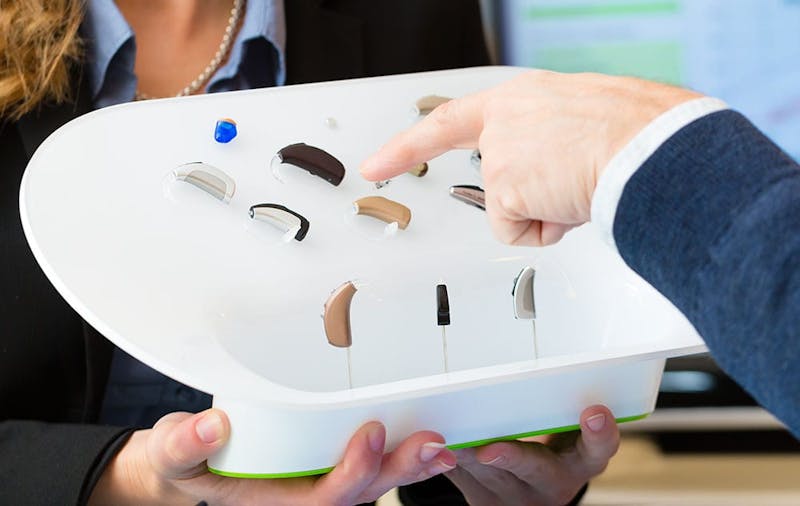
One of the most common questions asked during a first appointment at the audiologist is, how often should you replace your hearing aids? Though there isn’t really a straightforward answer to this question, audiologists generally recommend hearing aid replacement between every three and five years. There are various reasons that determine whether you should go for hearing aid replacement or upgrade. Your audiologist should guide you through this process.
When You Should Replace Your Hearing Aids
Whether in-the-ear, behind-the-ear or in-the-canal hearing aids are intricate devices that facilitate clarity of hearing. It is imperative to understand the appropriate time and circumstances for when you should begin thinking of getting a new hearing aid. Here are some of the reasons worth considering when making such decisions.
Damaged Hearing Aids
This is definitely one of the primary reason’s patients will opt for hearing aid replacement. As a piece of amazing technology, these devices come in various shapes with complex components, and are often sent to the audiologist for repairs. If a hearing aid is not functioning correctly, you may be able to do some DIY troubleshooting before calling for audiologist assistance. This could be risky however, as an irreversibly damaged device would need more time to repair, and this comes at a cost. This makes purchasing a new hearing aid the best decision.
Hearing Aids Lasting Over Five Years
Hearing aids are devices that are usually worn daily, making them very susceptible to wear and tear. They are tiny computers that undergo various algorithms to refine your hearing experience continually. Though adopting a good maintenance routine for your device will prolong its life, inevitable exposure to ear wax and moisture can nevertheless have damaging effects. What’s more, hearing aids become obsolete over time and may not function as efficiently as newer models.
Changes In Hearing Health
Hearing loss is common, and in most cases considered mild. That said, almost a quarter of Americans from age 12 upward experience hearing loss to some degree, and more than two million people living in the United States experience profound hearing loss. The World Health Organization (WHO) states that profound hearing loss is when your better ear can hear the quietest sound between 60 and 80 decibels. Persons experiencing profound hearing loss are better off with more robust hearing aids. And if you are one of them, your current device may not be effective enough for your condition.
Major Changes In Lifestyle
When settling on the type or style of hearing aids during your appointment with the audiologist, your lifestyle at the time was one of the considerations taken when deciding which one was right for you. A change in lifestyle is a good enough reason to have new hearing aids. For example, if you are now continuously going hiking you’ll need a new hearing aid that can stand the rigorous hiking conditions or you have just got yourself a new tech gadget that is not connecting with your hearing aid you’ll need to get a new hearing aid that is compatible.
Improved Finances
At the time of getting your hearing aids, limited finances may have meant you opted for an economical pair. This was likely not your preferred choice, but if you have seen an improvement in your finances you could now be able to afford the pair you really want. People also like to wear types of hearing aids to match different occasions, so they will often get a fresh pair while keeping the old ones as spares.
Visit Your Audiologist
For everything to do with your hearing and hearing aids, your audiologist is the best person to go to for information and guidance. An audiologist is a professional with a masters or doctorate degree to diagnose and treat hearing problems. While thinking about the requirement for new portable hearing aids, book an appointment with your audiologist to achieve the following three things:
First, get your hearing assessed if you have not done so within the last year. This is important because hearing loss conditions usually intensify over time. Therefore, it is imperative to ensure that the impression that your hearing aids have deteriorated isn’t in reality because of a change in your hearing ability.
Second, have your current hearing device expertly checked and cleaned. Ensure that your audiologist carries out an electroacoustic check for it, which will give better understanding into how well your hearing aids are performing.
Lastly, take a good look at the most recent hearing aid innovations. Like everything computerized, hearing aids have progressed significantly, even in just the last few years. In recent times, there are advanced hearing aids that can be controlled by your cell phone and permit your audiologist to alter your fittings remotely without you needing to visit the clinic.
Many modern hearing aids also allow you to hear clearly and understand conversations even in challenging circumstances such as at shopping centers, restaurants and even outside –often even better than individuals with normal hearing!
Get in touch with us today at Louisiana Ear Nose Throat & Sinus. We are always happy to help. Call us today at Baton Rouge (Bluebonnet Blvd): (225) 888-8630, Baton Rouge (Dijon Drive): (225) 769-1090, Denham Springs: (225) 243-4211, Zachary: (225) 658-4334 and St. Francisville: (225) 769-1090

